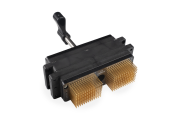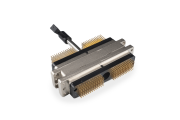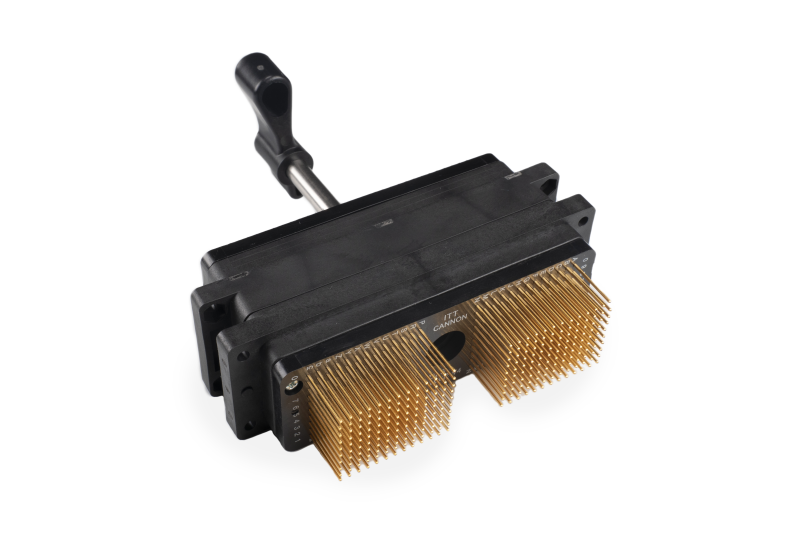 As new technology takes off, test and measurement become critical to designing new products, ensuring compliance to increasingly complex standards, and assuring quality products. Automated Test Equipment (ATE) is invaluable in testing everything from intricate wire harnesses or control systems to semiconductors and integrated circuits before incorporating into a final, high-tech assembly.
As new technology takes off, test and measurement become critical to designing new products, ensuring compliance to increasingly complex standards, and assuring quality products. Automated Test Equipment (ATE) is invaluable in testing everything from intricate wire harnesses or control systems to semiconductors and integrated circuits before incorporating into a final, high-tech assembly.
The cable harness is thankfully, one critical aspect of ATE that can be simplified with a reliable and robust Zero Insertion Force (ZIF) style connector. By selecting a ITT Cannon DL Series ZIF connector, you reduce signal interference and contact fretting, while streamlining set-up processes and reducing the time between test batches
 What is a Zero Insertion Force Connector?
What is a Zero Insertion Force Connector?
Zero Insertion Force (ZIF) connectors were initially developed by ITT Cannon for use in ultrasound equipment that required a high-density and high-mating cycle connector for image signals. Over time, they have found a powerful, secondary use in test and measurement.
ITT Cannon’s ZIF connectors have an innovative contact and coupling system that ensures the bodies can fully engage without the contacts touching. The external cam system, or lever, allows gentle and complete mating of a large number of pins while eliminating associated wear and mating friction. Rather than utilizing a frictional mating force, a cam (typically a half-turn or quarter arrangement) goes into position with the rotation of a handle. Lining up numerous pins to mate a connector is tedious since you do not want to bend any of the pins and ruin the connector or, worse yet, cause a short during testing.
ITT Cannon’s ZIF connectors come in many different styles: DL (plastic shell), the DLM (metal shell), DLP (enhanced shielded version), and QLC (miniaturized), all with a range of pin counts. The internal cam that engages these ZIF connectors can be operated single-handedly with a small external lever.
 How do they work?
How do they work?
All of ITT Cannon’s ZIF connectors achieve a slight wiping action as pins in the connectors engage. This is because a film can build up on contacts over time that is unless contacts exist in a vacuum. The slight wiping action gently cleans without causing wear-inducing friction. ITT Cannon offers several types of ZIF connectors in a 60 to 408 range pin count from authorized distributors. (ITT Cannon also manufactures custom pin count connectors.)
If there’s not enough movement or force when mating, films that develop on the pins are not going to be penetrated and can insulate against a true connection. However, if the movement of the contact “plowing” through the film is too great, it can create debris that increases resistance against making good contact. The slight wiping of ITT Cannon’s superior cam system occurs every time the contacts are mated in the ZIF connectors, reinforcing reliability.
 Why ITT Cannon ZIF Connectors?
Why ITT Cannon ZIF Connectors?
The ITT Cannon DL Series of ZIF connectors are ideal for medical, commercial, and industrial equipment marketplaces as high-performing, multiple-wire power and signal connectors that are also cost-effective. You can mate ITT Cannon’s ZIF connectors from 10,000 (DL) to 20,000 (QLC) times with no fear of failure.
A test harness with quality connectors that can withstand a beating and increase time-to- market is an obvious choice. To learn more about the DL Series ZIF connectors and their performance, visit www.ittcannon.com


